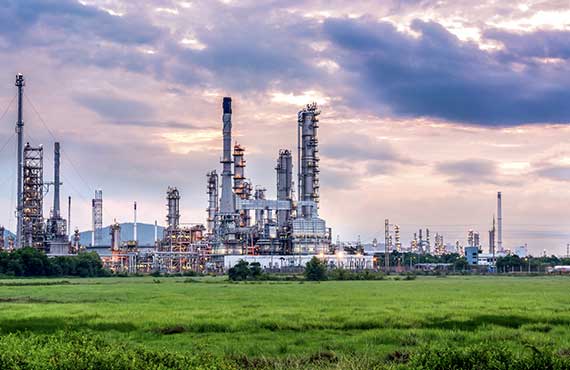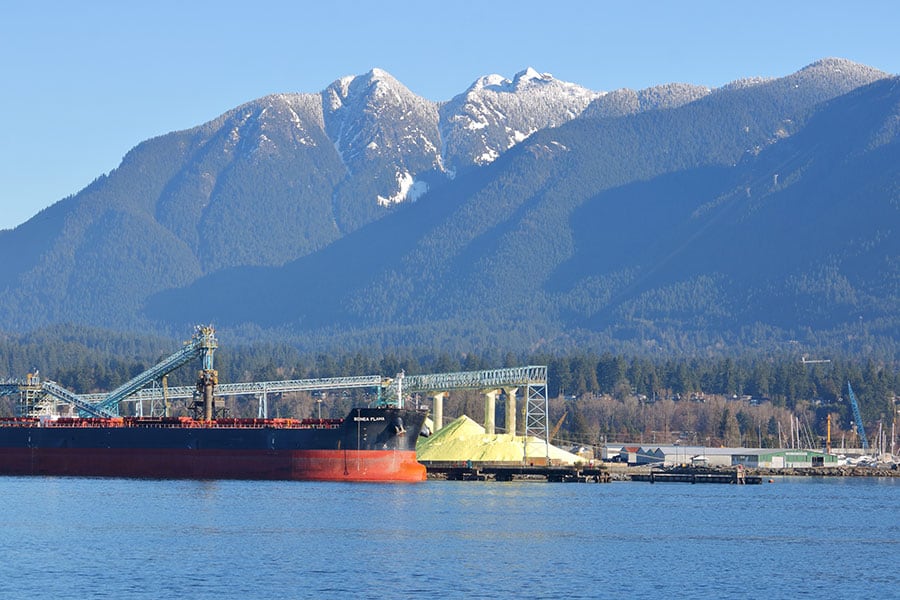Market Overview
The petrochemicals industry is known for the production and trade of a remarkable range of consumer and industrial products. Petrochemicals are at the core of multiple industries, including packaging, textiles, cosmetics, toiletries, and electronics and are also crucial to the global energy grid. Petrochemicals are derived from fossil fuels, such as crude oil and natural gas. Coal and biomass are other notable sources of petrochemicals.
The primary classes of petrochemicals are:
- Olefins (ethylene, propylene, and butadiene)
- Aromatics (benzene, toluene, and xylenes)
These form the basis of several useful products that include:
- Synthetic rubber
- Plastics
- Adhesives
- Detergents
- Tires
They also produce a group of chemicals called petrochemical intermediates, which are more complex versions of their primary counterparts. These derivatives are further used in the manufacturing of a variety of products. A typical example is ethylene glycol, which is used in polyester textile fibres and in a variety of applications in the oil and gas industry. The rising demand for petrochemicals and their common use in people’s lives has led to an increase in the need for cost-effective production facilities.
Experience Overview
Vista Projects is a multi-discipline engineering firm and leader in the digital transformation of industrial projects. Our unique mix of engineering experience and data-centric, single-source-of-truth project execution has enabled us to engineer some of the most cost-effective energy processing facilities in North America.
Our highly collaborative and transparent approach has worked well with technology developers and facility operators seeking to modernize plant design methodology for petrochemical processing. Contact us to schedule a demo and learn how a customized digital solution will benefit your petrochemicals project.

Vista Projects also has extensive experience with utilities, tankage, and well pad & pipeline development. Our project history includes long-term brownfield programs and multi-phase greenfield expansion projects.
Sulphur Polymer Production

Exclusive Technology Partnership with MARBET® WIL
Vista Projects has partnered with a MARBET® WIL, a Polish environmental service company, to engineer sulphur polymer production facilities in Canada.
Modularization Optimization in Facilities Engineering
Related Brochures
Looking for more information? Download one of our related brochures to learn more about Vista Projects’ engineering consulting services.
Project Experience Overview
Modularization Optimization
Engineering Capabilities
Vista Projects’ engineering expertise extends across diverse markets and is of great value to the petrochemical industry. As a fully integrated engineering firm with decades-long experience in projects of all scale and scope, Vista Projects understands petrochemical processing and has all the prerequisites required to engineer the utilities needed in large-scale petrochemical processing plants.
Ethylene Crackers
Ethane cracker plants turn ethane extracted from natural gas into ethylene. Ethylene is the cornerstone of the plastics industry and is at the core of various products.
Polyolefin Plants
Polyolefin plants polymerize propylene and ethylene monomers. These are used across various industries, including plastics.
Propane Dehydrogenation Plants
These plants are responsible for producing propylene from propane. Polypropylene is an essential component of major automotive and textile industries.
Upgrades And Retrofits
Vista Projects’ experience with brownfield facility engineering is highly applicable to the petrochemical processing market. Our fit-for-purpose designs and cost-effective engineering solutions are of particular benefit to petrochemical plants.
What Our Clients Say

Improve your project success with the help of seasoned experts

Tyler Elchuk
Business Development Director
All Clients Deserve
A Single Source of Truth
Our unique truth-based industrial engineering execution model facilitates:
- Transparency about projects and assets
- A collaborative problem-solving approach
- High-quality engineering designs
By structuring data in a single-source-of-truth (SSOT) environment, we simplify the digital transformation of your asset and help you make more informed decisions. Learn more about our system integration services.


